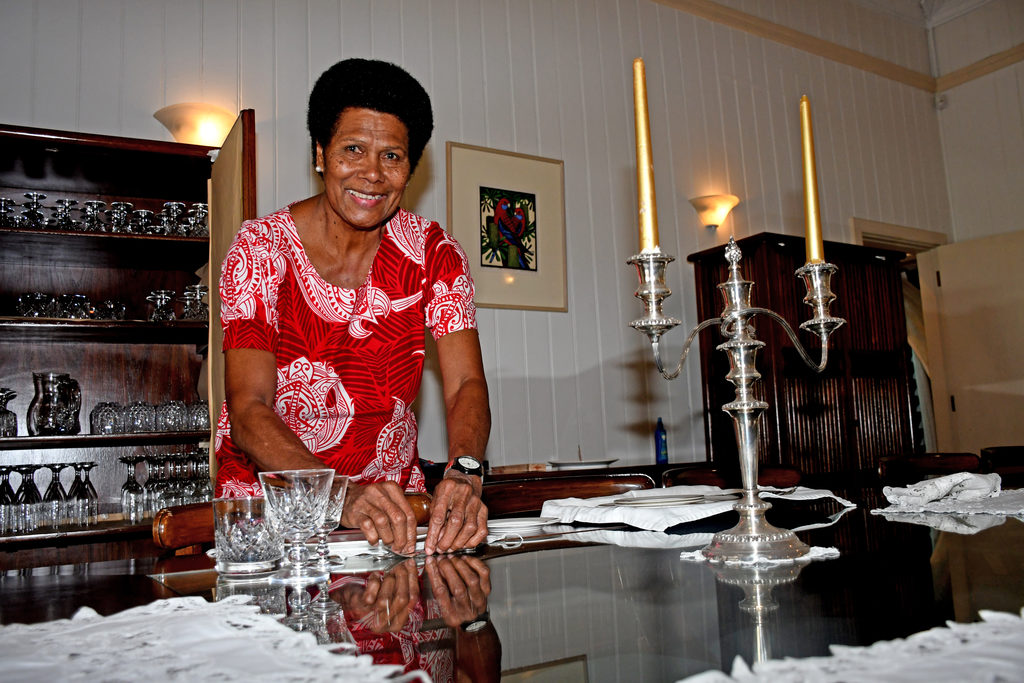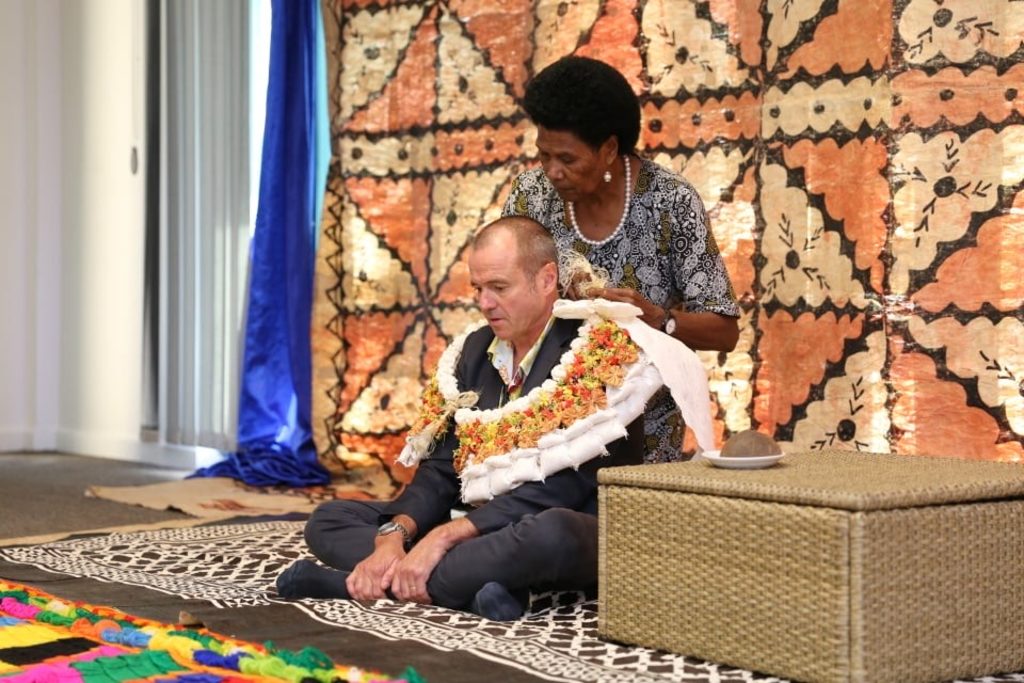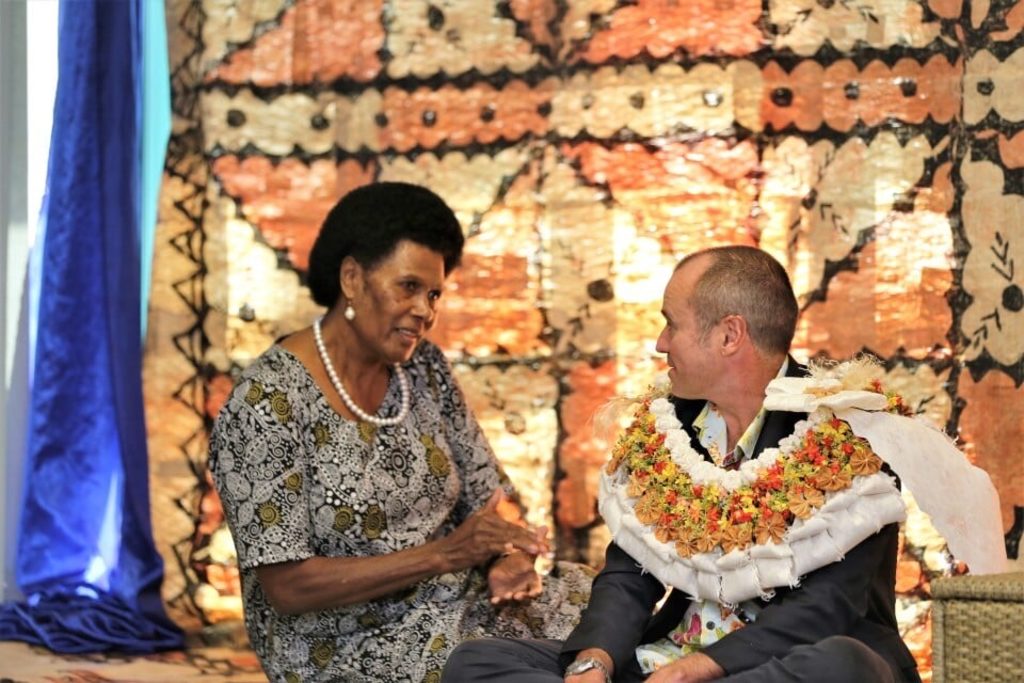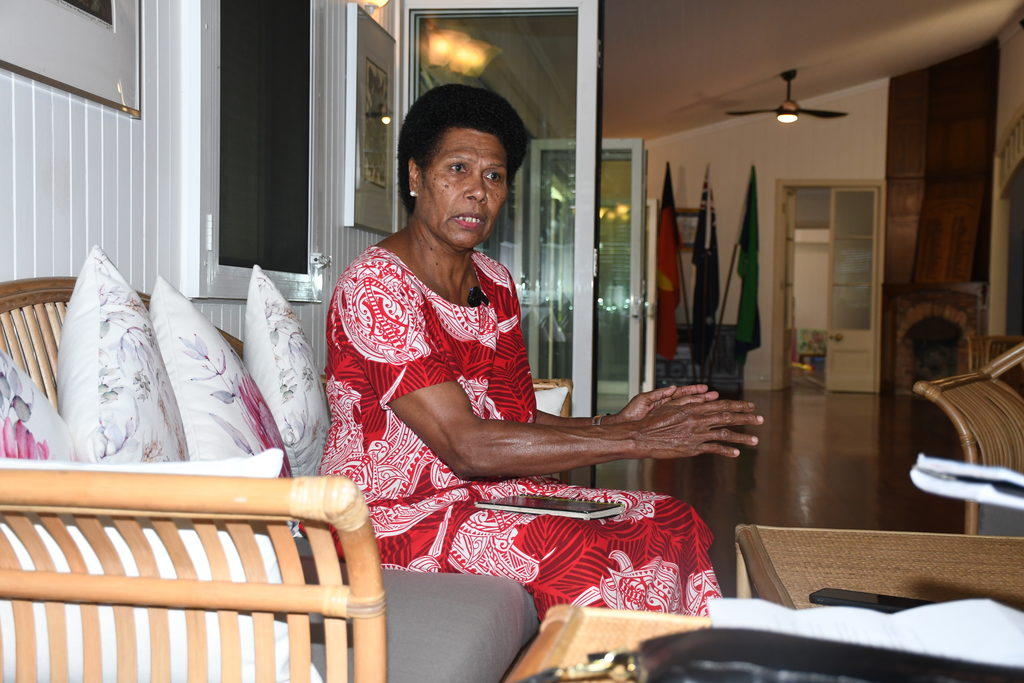WHEN Lusiana Kausoqo first walked into the Australian High Commission in 1982 for a job interview, she was crippled with fear.
It was the woman who was coaxing and guiding her at the elbow — her employer at the time, Penny-Ana Urwin, who was adamant that Ms Kausoqo, then 25, would complete the interview process.
“I was very nervous and scared that day,” said Ms Kausoqo.
“I had never been to a massive house like that.”
At 68 years of age, Ms Kausoqo – known as Lusi to many – has served at least 16 Australian High Commissioners to Fiji over a span of 43 years.
In over four decades, she has seen more than many – from high commissioners being unceremoniously told to not return to Fiji at the height of a takeover and being brutally attacked while on a jog, to the deep acts of kindness and care lavished on her and other staff by high commissioners and their spouses.
Lusi, who hails from Buretu Village in Tailevu, credits her decades of success to the early teachings of Mrs Urwin.
“Mrs Urwin wanted to help me find a new job before they returned to Australia. She saw the High Commission’s vacancy for a housekeeper and told me, ‘Lusi, we’re going to apply for this job’.
“She did everything for me, even accompanied me to the interview. I was so scared because I had never served a high commissioner before. I studied only up to Form 4 but failed and have never been to catering school or anything like that.”
In the days after the interview, Lusi was told the job was hers.
“From the basics of housekeeping to serving guests, and from how to set the table and dining etiquette to how to prepare food and even how to remove a plate off the table when a guest is done – Mrs Urwin taught me everything I needed to learn and I will always be grateful to her.
“My first boss at the Australian High Commission was Raymond Greet. I started with housekeeping then did a little bit of cooking. Eventually, the Australian women I came to know taught me to cook new dishes.
“In 1987 when the first coup happened, John Piper was the high commissioner at the time. He was advised by the Australian Government to return to Australia so he did. He was replaced by Bob Cotton who I also served.”
In 1995, Lusi was ecstatic to learn she had another opportunity to serve the Urwins when Mr Urwin was appointed Australia’s High Commissioner to Fiji.
“I’ve had many good bosses, but the most memorable of them all was Mrs Urwin. I became very close with her children, and the first time I ever boarded a plane was when I travelled to Samoa for one of their children’s wedding.
“One evening, they were waiting for their son, Wylie Clarke, to come home so they could have dinner together but he was late so they told me to serve dinner without him. When he returned, his father scolded him so Wylie went outside, crying.
“I tried to console him but we all ended up crying outside, joined by another of my colleagues who worked in the kitchen. That’s how close we were – as if we were all siblings and Mr and Mrs Urwin were our parents too.”
Lusi also remembers Susan Boyd who was the first woman appointed as Australia’s High Commissioner to Fiji in 1999.
“In 2000, during Ms Boyd’s term, she was having lunch one day when we heard gun shots. Many families were being sent back to Australia because of the coup while staff stayed on. At the time, curfews were imposed so expatriate staff were staying onsite at the residence so we would cook for them and do their laundry.”
Ms Boyd was replaced by Jennifer Rawson in 2003, whose brutal attack was widely publicised.
“One morning (in 2005) a taxidriver came to the High Commission. He brought in Mr Rawson who was robbed and assaulted while she went for a job She was injured when he found her so he gave her a lift.”
Ms Rawson was later flown to Australia for surgery.
“She was advised not to return but a few weeks later she came back and resumed jogging like nothing happened.”
During the December 2006 coup, James Batley replaced Ms Rawson as Australia’s High Commissioner to Fiji.
“Before the takeover, Mr Batley went on leave and was due to return on a Monday but was told to not return. He asked if he could come back just to pack his belongings but was refused so a staff had to communicate with Mr Batley to pack his belongings.
“We helped take down photos and other items that needed to be packed. He was a good man but because of what happened, he couldn’t say a proper goodbye and we couldn’t give him a proper farewell.”
A decade later, Lusi says Mr Batley visited the High Commission in Fiji and asked to meet local staff who were serving during his term in-country.
“We were happy to see him again and were able to get closure from that meeting with him.”
Judith Robinson served as Acting High Commissioner to Fiji in-country in the wake of the 2006 coup, a time when Lusi was preparing her youngest son for boarding school.
“I asked Ms Robinson’s husband (Chris Gregory) if I could go to town during my lunch hour because I needed to go to the bank. He asked me, ‘what for?’ so I told him I was going to get a loan to buy my son’s school needs. I got a $1000 loan that day.”
Lusi sent her son off to school and during the week, he would constantly call and insist his mother visit him in the weekends or he would run away. She said Mr Gregory often overheard her conversations with her son and told her she should not make a habit of seeing him every weekend.
“But I would go quietly without him knowing. One day he told me he wanted to see my bank papers after lunch. I gave them to him and he said we had to go to the bank after lunch in his car. He told me to wait outside. When he came out, we got back in the car and headed back to the residence.
“Then he told me he had cleared my debt – I broke down right there, in front of him. I couldn’t believe he had paid for my loan and when we got off, I couldn’t help but hug and thank him for what he had done for me.”
Lusi also remembers the popular John Feakes with fondness.
“Mr Feakes once told me to bring my grandchildren to the official residence for a weekend. He bought our food supplies for the weekend so I brought my grandkids. They wanted to watch TV but I forbid them from touching anything but they were allowed to use the pool.
“They enjoyed that weekend so much that they keep asking me to this day when they could return for another weekend.”
Mr Feakes, she said, was always generous.
“At Christmas, we usually have a bonus from the High Commission but there was a separate bonus he paid us out of his pocket. And every first Monday of the month, he would always have food rations waiting for us in the kitchen – big tins of biscuits and other food items for our families. He was such a great gentleman.”
With the arrival of Australia’s newest High Commissioner to Fiji, Peter Roberts, and his wife Lisa, Lusi is still soaking in what she calls “different and new”.
“Mrs Roberts is very different. Never have we mingled this close with the wives of past high commissioners. She has made it something of a tradition to bake us treats, make us tea and then sit and chat with us over tea. We are usually afraid to speak to the wives of high commissioners and this was very new for us.”
As Lusi prepares to close another chapter in her sterling 43-year service, she does so with a full heart, knowing she has helped lay the vuvale foundation shaped by connection, indulgent memories and the best of both Fiji and Australia.
Lusiana Kausoqo at the Australian High Commission in Suva.
Picture: JONA KONATACI

Lusiana Kausoqo garlands outgoing High Commissioner John Feakes at his farewell in 2022. Picture: Australian High Commission

Kausoqo holds John Feakes in high regard, remembering him as the man who gave her grandchildren the chance to experience a weekend at the high commission residence.
Picture: Australian High Commission



